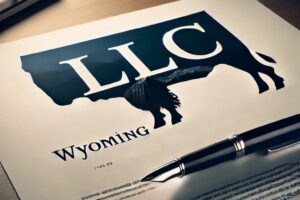
Life insurance is often perceived as a standalone financial product designed solely to provide a safety net for families in the event of the policyholder’s death. However, its role in estate planning is far more significant and multifaceted. Life insurance can be a powerful tool in ensuring financial security, reducing tax liabilities, and achieving specific estate planning goals. In this post, we’ll explore the various ways life insurance can be integrated into an estate plan and why it’s an essential component for individuals at all stages of life.
- Providing Financial Security for Loved Ones
The primary purpose of life insurance is to provide financial support to your beneficiaries after your death. In the context of estate planning, life insurance serves as a means to replace lost income, pay off debts, and cover everyday living expenses for your family. This financial support can be crucial in helping your loved ones maintain their standard of living during a difficult time.
Key Benefits:
- Income Replacement: Ensures that your family continues to receive financial support if you are the primary breadwinner.
- Debt Coverage: Helps pay off mortgages, car loans, or other debts, relieving your family from financial burdens.
- Education Funding: Provides for your children’s education, ensuring their secure future.
- Covering Estate Taxes and Expenses
One of the significant challenges faced by heirs is dealing with estate taxes and other related expenses. Depending on the size of your estate, your heirs may face substantial estate tax liabilities that could potentially force them to sell assets to cover these costs.
Role of Life Insurance:
- Liquidity: Life insurance provides immediate cash to cover estate taxes, legal fees, and other expenses without the need to liquidate valuable assets.
- Estate Tax Coverage: Life insurance proceeds can be used specifically to pay estate taxes, allowing your heirs to retain more of the estate’s assets.
- Equalizing Inheritances
In families with multiple heirs, distributing assets equally can sometimes be challenging, especially when certain assets, like a family business or real estate, cannot be easily divided.
How Life Insurance Helps:
- Equal Distribution: Life insurance proceeds can be used to balance inheritances among heirs, ensuring fairness and reducing potential family conflicts.
- Business Succession Planning: If one child is set to inherit a family business, life insurance can provide an equivalent cash value to other children.
- Funding Buy-Sell Agreements
For business owners, life insurance plays a critical role in facilitating business succession and ensuring the continuity of the company after an owner’s death.
Benefits for Business Owners:
- Buy-Sell Agreements: Life insurance can fund buy-sell agreements, allowing surviving partners to purchase the deceased owner’s share of the business, ensuring smooth transitions.
- Business Continuity: Provides necessary funds to keep the business running and manage operational costs during transitional periods.
- Supporting Charitable Giving
For those looking to leave a philanthropic legacy, life insurance offers a way to make substantial charitable contributions as part of their estate plan.
Philanthropic Strategies:
- Charitable Beneficiary: Designate a charity as a beneficiary of your life insurance policy, allowing you to make a significant impact without depleting other assets.
- Charitable Remainder Trusts: Use life insurance to replace assets gifted to a charitable remainder trust, ensuring your heirs still receive an equivalent inheritance.
- Building Wealth and Asset Protection
Certain types of life insurance policies, such as whole life or universal life, offer cash value accumulation, which can be leveraged as part of your overall financial and estate planning strategy.
Wealth-Building Aspects:
- Cash Value Accumulation: Build cash value over time, which can be accessed for other financial needs or emergencies.
- Creditor Protection: Accumulation of cash value can also serve as an asset protection strategy. Arizona law offers creditor protection for life insurance cash value and death benefit proceeds, adding a layer of security to your estate.
Conclusion
Life insurance is more than just a safety net; it’s a versatile tool that can enhance your estate planning efforts by providing liquidity, supporting business succession, ensuring fair asset distribution, and facilitating charitable endeavors. Incorporating life insurance into your estate plan can offer peace of mind, knowing that your loved ones are financially secure and your legacy is preserved.
To make the most of life insurance in your estate plan, it’s essential to work with an experienced planning team, such as ours here in Tempe and Scottsdale, who can tailor strategies to fit your unique goals and circumstances. By understanding the role of life insurance and strategically integrating it into your estate plan, you can create a comprehensive plan that meets your financial objectives and protects your family’s future.
Contact Soto Law Firm to book a consultation and begin crafting your estate plan. Call us today at (480) 456-6267 or visit our website.



